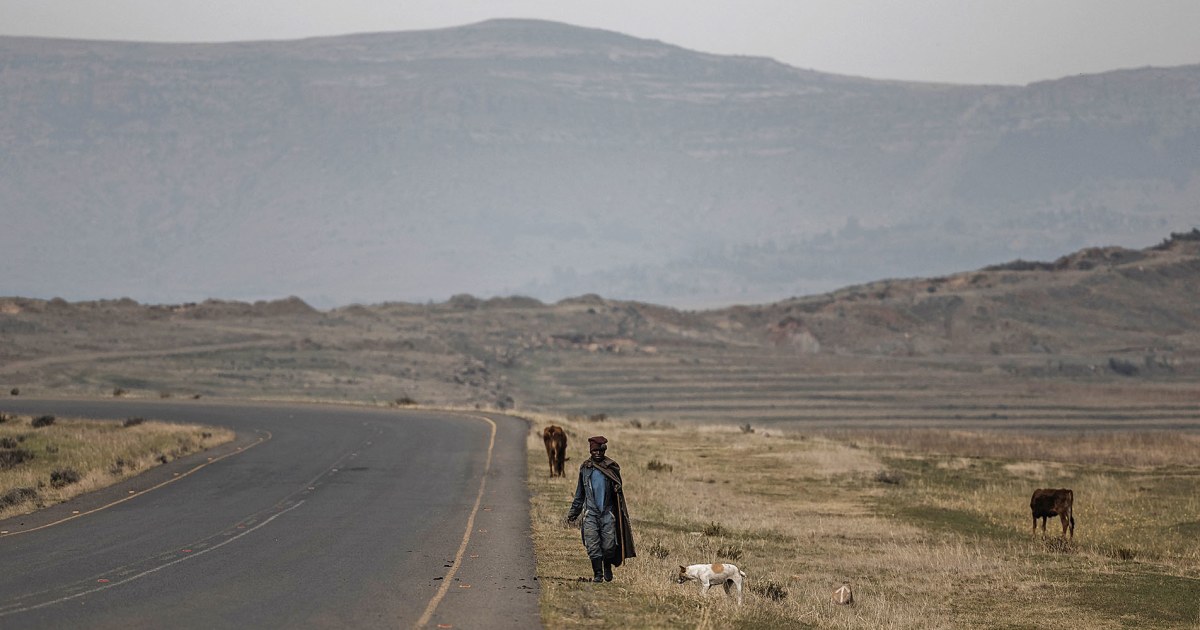Lesotho Faces Economic Ruin? A Deep Dive into the Mountain Kingdom's Crisis
Lesotho, the mountainous kingdom encircled by South Africa, is facing a profound economic crisis. While often overlooked in global headlines, the situation demands urgent attention. This in-depth analysis explores the contributing factors, potential consequences, and possible pathways to recovery for this small, vulnerable nation.
The Perfect Storm: Factors Contributing to Lesotho's Economic Woes
Lesotho's economic struggles are not the result of a single event, but rather a confluence of interconnected challenges:
1. Dependence on South Africa:
- Trade Imbalance: Lesotho's economy is heavily reliant on South Africa, its largest trading partner. This dependence leaves it vulnerable to fluctuations in the South African economy and its policies. Any economic downturn in South Africa directly impacts Lesotho's exports, particularly its crucial textile and clothing industries.
- Remittances: A significant portion of Lesotho's GDP relies on remittances from citizens working in South Africa. Changes in South African immigration policies or economic downturns can drastically reduce these vital inflows.
2. Climate Change and its Impacts:
- Agriculture: Lesotho's economy is significantly impacted by agriculture, particularly livestock farming. Increasingly unpredictable weather patterns, droughts, and floods severely threaten agricultural yields and food security, impacting both rural livelihoods and national income.
- Water Resources: As a water-scarce nation, Lesotho's vulnerability to climate change is exacerbated by dwindling water resources crucial for agriculture and hydropower generation.
3. Governance and Corruption:
- Weak Institutions: Weak governance and institutional capacity hinder effective economic management, resource allocation, and the implementation of much-needed reforms.
- Corruption: Allegations of corruption further erode public trust, deter investment, and divert resources from essential public services.
4. Limited Diversification:
- Over-reliance on Textiles: Lesotho's economy is heavily reliant on the textile industry, making it susceptible to global market trends and competition. A lack of diversification limits its resilience to economic shocks.
- Lack of Industrialization: Limited industrial development hinders job creation and economic growth, perpetuating a cycle of poverty and dependence.
The Potential Consequences of Economic Collapse:
The ongoing economic crisis poses several severe risks for Lesotho:
- Increased Poverty and Inequality: A worsening economic situation will exacerbate poverty and inequality, potentially leading to social unrest and instability.
- Food Insecurity: Dwindling agricultural output, coupled with economic hardship, threatens food security, potentially leading to widespread hunger and malnutrition.
- Mass Migration: Economic hardship may drive increased migration, putting further strain on already strained resources and social systems.
- Political Instability: Economic woes can fuel political instability, potentially leading to social unrest and conflict.
Pathways to Recovery: A Glimmer of Hope?
While the situation is dire, several strategies could help Lesotho navigate this crisis:
- Economic Diversification: Investing in other sectors beyond textiles, such as tourism, renewable energy, and technology, is crucial to reduce economic dependence.
- Strengthening Governance and Institutional Capacity: Tackling corruption and improving governance are essential for attracting foreign investment and promoting sustainable development.
- Investing in Human Capital: Improving education and healthcare can enhance productivity and reduce inequality.
- Climate Change Adaptation: Investing in climate-resilient agriculture and water management is essential to mitigate the impacts of climate change.
- Regional Cooperation: Strengthening regional partnerships, particularly with South Africa, can help facilitate trade and economic cooperation.
Conclusion: A Call for International Support
Lesotho's economic crisis demands urgent attention from both the international community and its own government. International support, through targeted aid, investment, and technical assistance, is crucial to help Lesotho implement the necessary reforms and build a more resilient and sustainable economy. Ignoring this crisis risks not only the future of Lesotho but also the stability of the wider Southern African region. The time to act is now.
Keywords: Lesotho economy, Lesotho economic crisis, Lesotho poverty, South Africa economy, climate change Lesotho, economic diversification, governance Lesotho, international aid Lesotho, Southern Africa economy.
